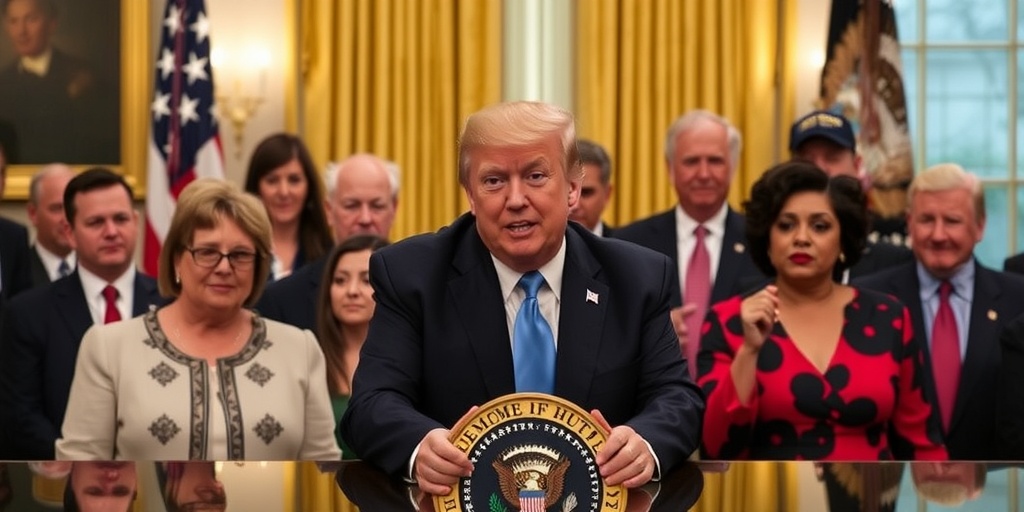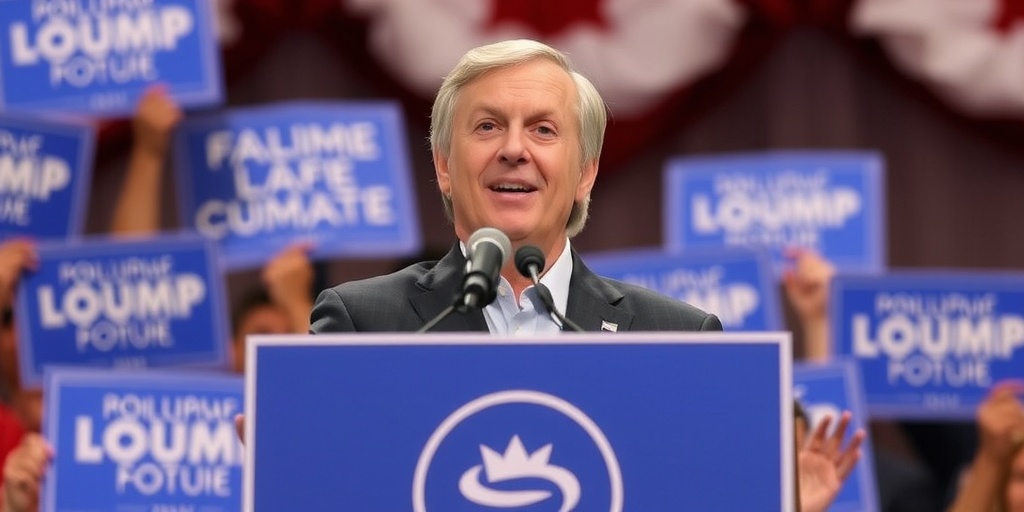Now Reading: Trump Grants Pardons to Most Jan. 6 Participants
-
01
Trump Grants Pardons to Most Jan. 6 Participants
Trump Grants Pardons to Most Jan. 6 Participants

Title: Unprecedented Presidential Pardons: Trump’s Controversial Move on January 6th Capitol Attack Charges
On his first day returning to the Oval Office, former President Donald Trump made headlines once again by issuing pardons to nearly 1,600 individuals charged in connection with the January 6, 2021, attack on the Capitol. This sweeping action has generated significant discussion and concern among legal experts, political analysts, and the general public, as it marks one of the most controversial uses of presidential pardon power in American history.
Maggie Haberman, a seasoned White House correspondent for The New York Times, sheds light on the unusual aspects of these pardons, emphasizing the potential ramifications for the nation’s political landscape and the rule of law. Pardons are typically granted to individuals who have been convicted of crimes, often as a means of showing mercy or acknowledging rehabilitation. However, in this case, Trump’s decision to pardon those charged, but not yet convicted, raises eyebrows and prompts questions about the motivations behind this unprecedented move.
The January 6 attack on the Capitol was a pivotal moment in American history, one that was widely condemned by leaders across the political spectrum. Thousands of supporters of Trump stormed the Capitol building in an effort to overturn the results of the 2020 presidential election, leading to violence, destruction, and numerous injuries. In the wake of the chaos, law enforcement made hundreds of arrests, with many defendants facing serious charges ranging from trespassing to assaulting law enforcement officers.
By issuing pardons for those involved, Trump appears to be sending a strong signal to his base, reinforcing his narrative that the 2020 election was stolen and painting the individuals involved in the attack as political prisoners rather than criminals. This act may not only galvanize his supporters but also deepen divisions within the country, as those who see the Capitol attack as a violent insurrection clash with those who view it as a misguided form of political protest.
Experts like Haberman point out that Trump’s pardons defy the traditional norms associated with such decisions. Presidential pardons have historically been used to rectify injustices, acknowledge rehabilitation, or provide relief for those serving excessively harsh sentences. In contrast, the pardons issued by Trump could be viewed as a rejection of accountability for actions that threaten the democratic process.
Moreover, the implications of these pardons extend beyond the immediate legal ramifications for the pardoned individuals. The timing and nature of the pardons may embolden those who participated in the riot and could inspire copycat actions in the future. This possibility raises concerns about public safety and the potential for further violence as political tensions in the United States remain high.
Additionally, legal scholars are pondering the potential for future administrations to face similar dilemmas. If pardons for violent acts intended to undermine democracy become normalized, it may complicate the way future leaders consider their authority to grant clemency. The precedent set by Trump’s decision may ultimately lead to a fracturing of legal and civic norms that have underpinned American democracy for centuries.
The unusual circumstances surrounding these pardons have ignited discussions about the broader implications for the criminal justice system and political accountability. Some argue that these actions may hinder efforts to achieve national healing and reconciliation in the aftermath of the Capitol riots.
As reactions to the pardons pour in from politicians, advocates, and the public, it is apparent that Trump’s move will continue to be a focal point of debate. While some hail the pardons as a necessary act of compassion for those who took a stand for their beliefs, many others decry them as an affront to justice and a direct challenge to the rule of law.
In conclusion, Trump’s sweeping pardons on his first day back in office represent a significant and contentious moment in American political history. By granting clemency to individuals charged in connection with an attack aimed at dismantling democratic institutions, the former president not only reinforces his commitment to his base but also raises pivotal questions about accountability, justice, and the future of American democracy. As the nation moves forward, the ramifications of this decision will undoubtedly continue to unfold, shaping the discourse around leadership, law, and the ethical boundaries of executive power.
Stay Informed With the Latest & Most Important News
Previous Post
Next Post
-
 01New technology breakthrough has everyone talking right now
01New technology breakthrough has everyone talking right now -
 02Unbelievable life hack everyone needs to try today
02Unbelievable life hack everyone needs to try today -
 03Fascinating discovery found buried deep beneath the ocean
03Fascinating discovery found buried deep beneath the ocean -
 04Man invents genius device that solves everyday problems
04Man invents genius device that solves everyday problems -
 05Shocking discovery that changes what we know forever
05Shocking discovery that changes what we know forever -
 06Internet goes wild over celebrity’s unexpected fashion choice
06Internet goes wild over celebrity’s unexpected fashion choice -
 07Rare animal sighting stuns scientists and wildlife lovers
07Rare animal sighting stuns scientists and wildlife lovers





















